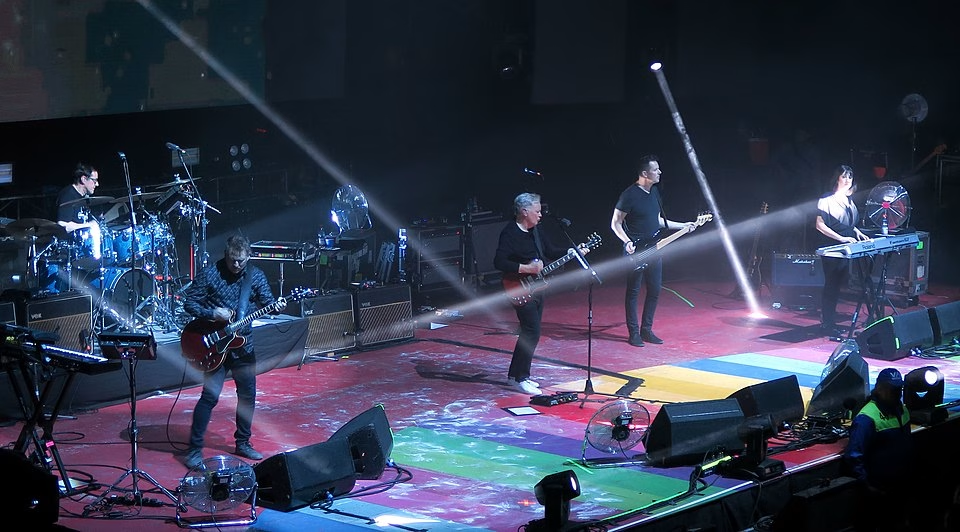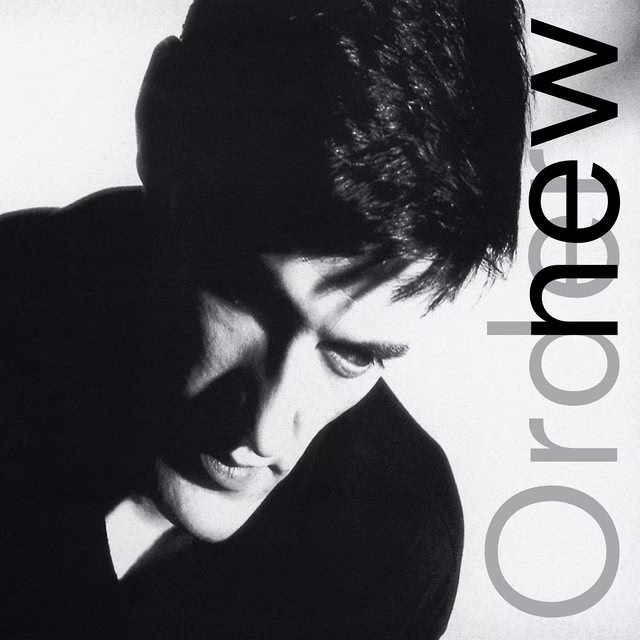New Order
New Order is an English rock band formed in 1980 by members of the post-punk band Joy Division following the death of lead singer Ian Curtis. The band members combined elements of post-punk and electronic dance music, creating a distinctive sound that made them one of the most influential bands of the 1980s and beyond. Here is a detailed overview of New Order, including their formation, members, musical style, and discography:
New Order. Formation
New Order was formed by Bernard Sumner, Peter Hook, and Stephen Morris after Joy Division disbanded following Ian Curtis’s suicide in May 1980. The addition of keyboardist and guitarist Gillian Gilbert completed the lineup. The band initially continued with the dark, melancholic sound of Joy Division but soon incorporated more electronic and dance elements, influenced by the burgeoning club scene.

New Order. Members
Current Members:
- Bernard Sumner – Lead vocals, guitars, keyboards (1980–1993, 1998–present)
- Stephen Morris – Drums, electronic drums, keyboards (1980–1993, 1998–present)
- Gillian Gilbert – Keyboards, guitars (1980–1993, 1998–2001, 2011–present)
- Phil Cunningham – Guitars, keyboards (2001–present)
- Tom Chapman – Bass, keyboards (2011–present)
Former Members:
- Peter Hook – Bass, backing vocals (1980–1993, 1998–2007)
- Steve Brotherdale – Drums (briefly in 1980 before Stephen Morris)
New Order. Musical Style
New Order’s music is known for its fusion of post-punk and electronic dance music. They were pioneers in integrating synthesizers, drum machines, and sequencers into their music, creating a sound that was both innovative and influential. The band’s early work retained the dark, atmospheric qualities of Joy Division, while their later material became more dance-oriented, characterized by catchy melodies, electronic beats, and Bernard Sumner’s distinctive vocals.
New Order. Discography
Studio Albums
- Movement (1981) – Their debut album, blending Joy Division’s post-punk sound with emerging electronic influences. Notable tracks include “Dreams Never End” and “Truth.”
- Power, Corruption & Lies (1983) – Marked a shift towards a more electronic sound. Featuring “Age of Consent” and “Your Silent Face.”
- Low-Life (1985) – A critical and commercial success, including “Love Vigilantes” and “The Perfect Kiss.”
- Brotherhood (1986) – Known for the hit single “Bizarre Love Triangle.”
- Technique (1989) – Incorporating influences from the acid house scene, featuring “Fine Time” and “Round & Round.”
- Republic (1993) – Including “Regret” and “World (The Price of Love).”
- Get Ready (2001) – Marked their return after a break, featuring “Crystal” and “60 Miles an Hour.”
- Waiting for the Sirens’ Call (2005) – Including “Krafty” and “Jetstream.”
- Lost Sirens (2013) – A compilation of tracks recorded during the sessions for “Waiting for the Sirens’ Call.”
- Music Complete (2015) – Featuring “Restless” and “Tutti Frutti.”
Compilations and Live Albums
- Substance 1987 (1987) – A compilation of their singles and B-sides, including “Blue Monday” and “True Faith.”
- The Best of New Order (1994) – A collection of their most popular tracks.
- Retro (2002) – A box set compilation spanning their career.
- Total: From Joy Division to New Order (2011) – Combining hits from both Joy Division and New Order.
New Order. Legacy
New Order is celebrated for their innovative fusion of post-punk and electronic music, paving the way for the dance-rock genre. Their influence can be seen in a wide range of artists across various genres, from electronic dance music to indie rock. Songs like “Blue Monday,” “Bizarre Love Triangle,” and “True Faith” remain iconic and are frequently cited as seminal works in the evolution of modern music.
The band’s ability to adapt and evolve their sound while maintaining their distinct identity has kept them relevant through decades of changing musical trends. Their contributions to the music industry are not just limited to their recordings; New Order’s involvement with the Manchester club scene, particularly their association with the Hacienda nightclub, played a crucial role in the development of the UK’s rave culture.
Despite internal conflicts and lineup changes, New Order continues to perform and release new music, solidifying their place as one of the most influential and enduring bands in contemporary music history.





